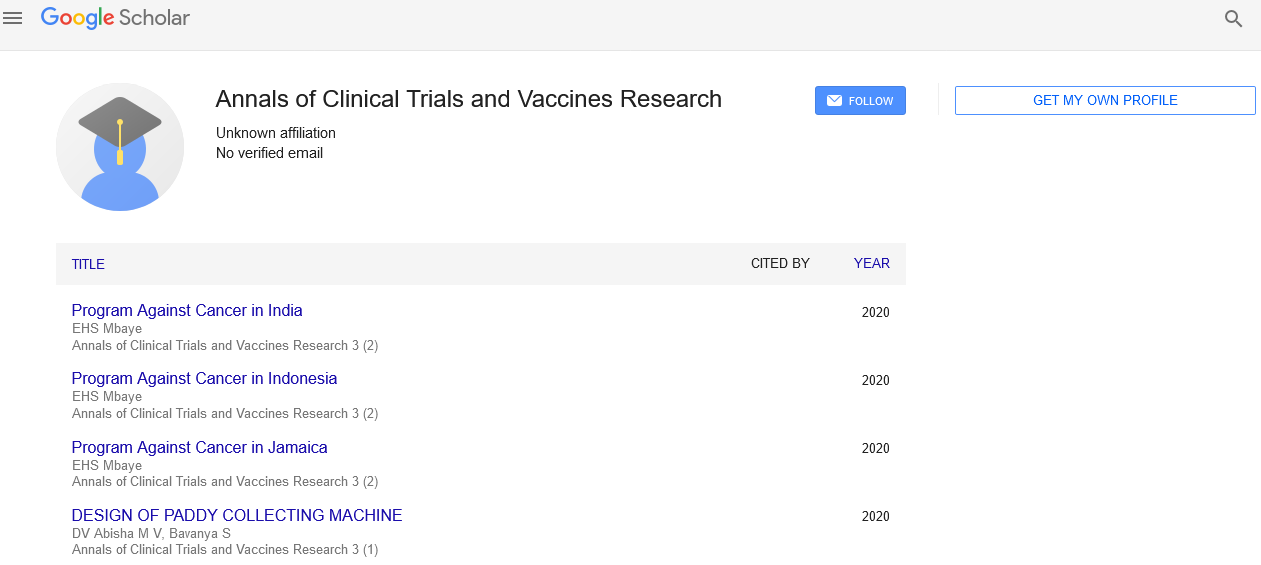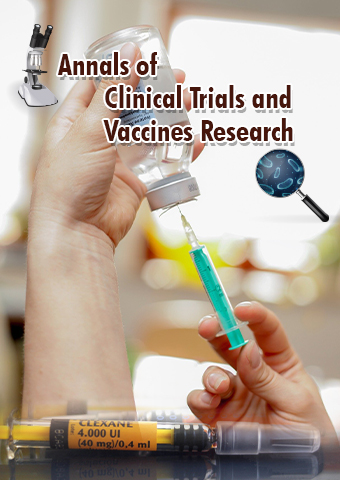Perspective - Annals of Clinical Trials and Vaccines Research (2024) Volume 14, Issue 4
Awareness Among Researchers During Drug Development
- Corresponding Author:
- Legmon Turikoe
Department of Pharmacolgy,
La Palma University,
La Palma,
Cuba
E-mail: legmon@83gmail.com
Received: 16-Jul-2024, Manuscript No. ACTVR-24-141125; Editor assigned: 19-Jul-2024, Pre QC No. ACTVR-24-141125 (PQ); Reviewed: 02-Aug-2024, QC No. ACTVR-24-141125; Revised: 07-Aug-2024, Manuscript No. ACTVR-24-141125 (R); Published: 12-Aug-2024, DOI: 10.37532/ACTVR.2024.14(4).248-249
Introduction
Drug development is a complex, multifaceted process that involves significant i nvestments of time, money, and human resources. Researchers play a crucial role in this process, driving innovation and ensuring that new therapies are safe and effective for public use. However, the path from initial discovery to market approval is fraught with challenges and risks. Awareness among researchers about the various aspects of drug development is vital for navigating these challenges successfully. This article explores the critical areas of awareness necessary for researchers in the field of drug development, emphasizing the importance of regulatory knowledge, ethical considerations, scientific rigor, collaboration and patient-centric approaches.
Description
Regulatory knowledge
Understanding regulatory frameworks: Researchers must be well-versed in the regulatory frameworks that govern drug development. Different countries have varying r egulations and staying informed about these can prevent costly delays and ensure compliance. For instance, in the United States, the Food and Drug Administration (FDA) oversees the approval process, while the European Medicines Agency (EMA) performs a similar role in Europe. Familiarity with guidelines from these bodies, such as the FDA’s Investigational New Drug (IND) application process or the EMA’s guidelines for clinical trials, is essential.
Adapting to changing regulations: Regulations are not static; they evolve in response to new scientific discoveries, public health needs and socio-political changes. Researchers must stay updated on these changes and understand their implications for ongoing and future projects. For example, the advent of precision medicine and gene therapy has led to new regulatory pathways and considerations. Awareness of these developments can help researchers design studies that align with current standards and anticipate future requirements.
Ethical considerations
Informed consent: Ethical considerations are paramount in drug development, particularly in clinical trials involving human participants. Informed consent is a cornerstone of ethical research. Researchers must ensure that participants fully understand the potential risks and benefits of the trial and that their consent is obtained voluntarily. This involves clear communication and the provision of all necessary information in a comprehensible format.
Ensuring participant safety
Participant safety is another critical ethical concern. Researchers must design studies that minimize risks and monitor participants closely for adverse effects. This includes implementing robust safety protocols and having contingency plans in place for managing unexpected events. Ethical awareness also involves respecting participants’ rights to withdraw from the study at any time without penalty.
Balancing scientific inquiry and ethical responsibility
Researchers often face dilemmas where scientific inquiry and ethical responsibility may seem at odds. For example, the pursuit of groundbreaking treatments might involve highrisk procedures. Researchers must balance the potential benefits of their work against the ethical imperative to protect participants from harm. This balance requires continuous ethical training and reflection.
Scientific rigor
Importance of robust study design: Scientific rigor is the foundation of credible and reproducible research. Researchers must design studies that are methodologically sound, with clearly defined hypotheses, appropriate controls, and sufficient sample sizes. This ensures that the results are reliable and can withstand scrutiny.
Data integrity and transparency: Maintaining data integrity is crucial for scientific credibility. Researchers should follow best practices for data collection, storage, and analysis, ensuring that all data is accurately recorded and reported. Transparency in reporting results, including negative or inconclusive findings, is also important. This transparency fosters trust and allows the scientific community to build on existing knowledge.
Peer review and collaboration: Engaging with the peer review process is essential for maintaining scientific standards. Researchers should be open to feedback and willing to revise their work in response to constructive criticism. Collaboration with other scientists, both within and outside their field, can enhance the quality of research and lead to new insights.
Collaboration and interdisciplinary research
Benefits of interdisciplinary teams: Drug development is inherently interdisciplinary, involving experts from various fields such as pharmacology, toxicology, clinical medicine, and regulatory affairs. Collaboration across these disciplines can lead to more comprehensive and innovative solutions. Researchers must be aware of the value of interdisciplinary teams and actively seek to engage with colleagues from different backgrounds.
Effective communication: Effective communication is key to successful collaboration. Researchers must be able to convey complex scientific concepts clearly and concisely to colleagues, regulatory bodies, and the public. This includes writing detailed reports, presenting findings at conferences, and engaging with media when necessary.
Conclusion
Awareness among researchers during drug development is crucial for navigating the complex landscape of regulatory requirements, ethical considerations, scientific rigor, collaboration, and patient-centric approaches. By staying informed and adaptable, researchers can contribute to the development of safe, effective, and accessible therapies that address unmet medical needs. Continuous learning, ethical reflection, and interdisciplinary collaboration are key to achieving these goals and advancing the field of drug development.

